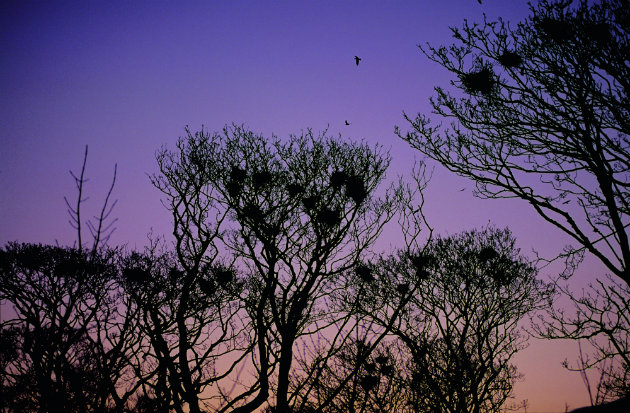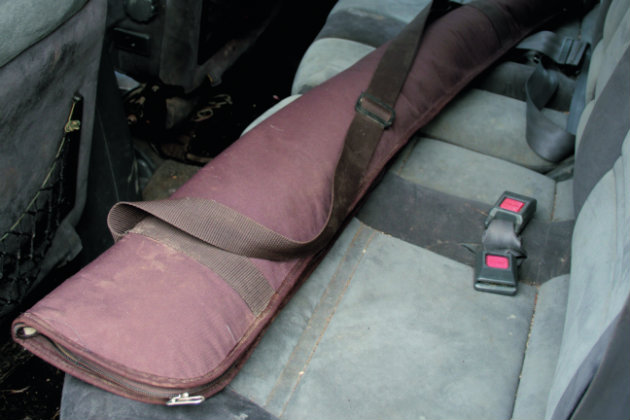Is shooting rooks a crime?
David Frost hears from one reader how he was taken to court for shooting rooks under general licence - despite the birds being on general licence

Rooks may be legally shot for crop protection and to protect threatened birds
When reader Ian Taylor emailed to say he was being charged with shooting corvids, I couldn’t believe my eyes. Corvids such as rooks are on the general licence and may be shot for crop protection, protecting wild birds and a number of other reasons. The licences specify the methods which may be used and these include airguns, which is what Ian was using. Clearly there was something seriously amiss, and if Ian were to be found guilty the repercussions could have been considerable. Fortunately, he had a good legal team.
Shooting rooks on a local estate in Scotland
The circumstances Ian explained to me that he had been out shooting rooks on a local estate in Scotland, on which he had enjoyed the permission to do so for more than 14 years. In early May 2014, he shot a number of “branchers” and returned the following week for another session. During the second session, Ian was accosted by a woman from a nearby house who accused him of “killing my babies”. She also claimed Ian had left wounded birds around the week before. Ian asked her to show them to him so that he could despatch them. She declined to do so. Ian had a firearm with him, so, quite correctly, rather than get involved in an argument, he walked away.
A summons from the procurator fiscal
In June 2014, two officers from the SSPCA asked to see Ian. They showed him a badge, warned him that he was under caution and offered him legal advice. They were very friendly and said there was nothing to worry about – they just wanted to hear his side of the story. Later, Ian received a summons from the procurator fiscal, the Crown’s prosecuting authority in Scotland. One witness alleged he had left 20 wounded birds and the other that he had left four. Some of the birds had been sent away for an autopsy and some young ones that had fallen out of the nest were sent to Inverness for rehabilitation and release.

Corvids are on general licence because they do damage and need to be effectively managed
Ian’s solicitor, Florence Fisher of BBM Solicitors, tried to get the fiscal to drop the charges, but he refused. Ian thinks this is because the Scottish Government wants more wildlife crimes to be prosecuted, a view which ties in with recent reports that there are to be 100 more wildlife officers.
The case went to trial on 24 March at Elgin Sheriff court. Ian feels he would have got away with claiming there was no case to answer if he had written evidence that there were crops in the fields near where he was shooting. In fact, more than 2,000 acres of barley had been drilled.
There were three witnesses to the first charge, two of whom Ian had seen before. The first said he thought he saw seven dead birds. An elderly lady said she’d heard her chickens cheeping and knew something was afoot. The original complainant kept talking about “her babies” and claimed Ian had left 20 wounded birds.
The autopsy report showed the birds had been shot in the chest and would have died swiftly. Because the complainant wouldn’t allow Ian to despatch the wounded birds, the sheriff felt Ian had been prevented from doing his job properly so found him not guilty.

The autopsy showed the rooks had been shot in the chest, but Ian had not been able to despatch the birds thanks to interference
I spoke to Florence Fisher, who explained that the SSPCA had received reports from neighbours that the rooks were in distress and being maimed rather than killed outright, but that the actual charges were brought by the fiscal. The fiscal did so because he evidently thought that there was sufficient evidence that a crime had been committed under the 1981 Wildlife and Countryside Act.
Evidence given by Crown witnesses inconsistent
Initially there were three witnesses for the Crown, all neighbours. The Crown was not going to call the SSPCA but Florence did so to check that the proper procedure had been followed. The SSPCA has a right to interview in these circumstance, but Ian felt the whole interview was much more relaxed than the SSPCA claimed and gained the impression that further action would be unlikely.
The evidence given by the Crown witnesses turned out to be inconsistent, which was of great advantage to Ian. In particular they could not agree on the number of birds killed. This may have been because the trial took place 10 months after the events which led to it.
£2,500 cost to defendant
Overall the case took five hours: a whole day’s work for the Court, not to mention all the preparatory work. Ian feels it was a complete waste of time and money. Worse, it cost him £2,500 to defend himself.
I was amazed that the Crown would go so such lengths on such flimsy evidence. Corvids and other birds are on general licence because it is acknowledged that they do damage and need to be effectively managed. Ian behaved correctly throughout, though he may have underestimated the enthusiasm of the SSPCA to obtain convictions for wildlife crime. I asked the SSPCA why it thought there was a chance of conviction. It declined to reply.








